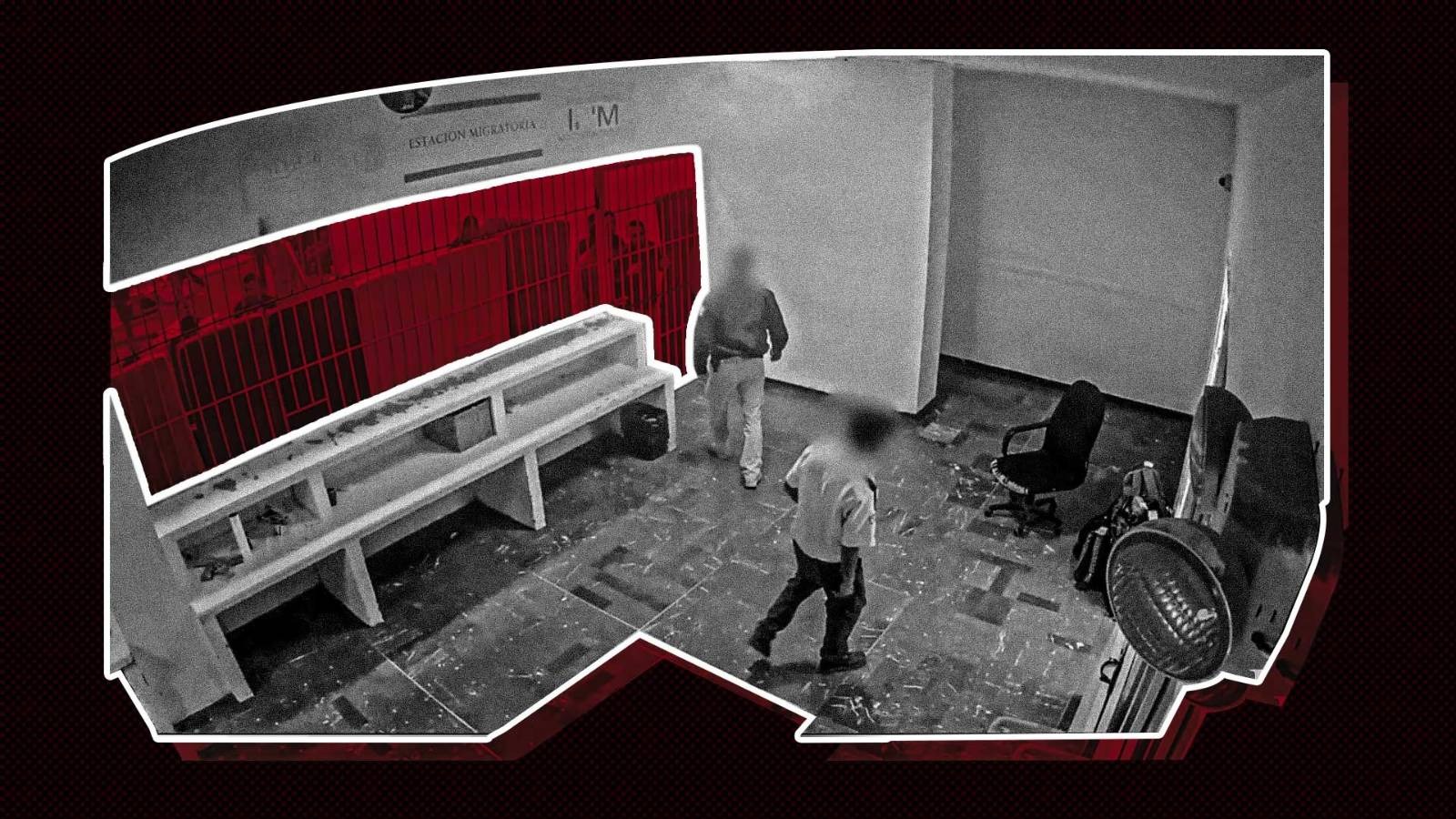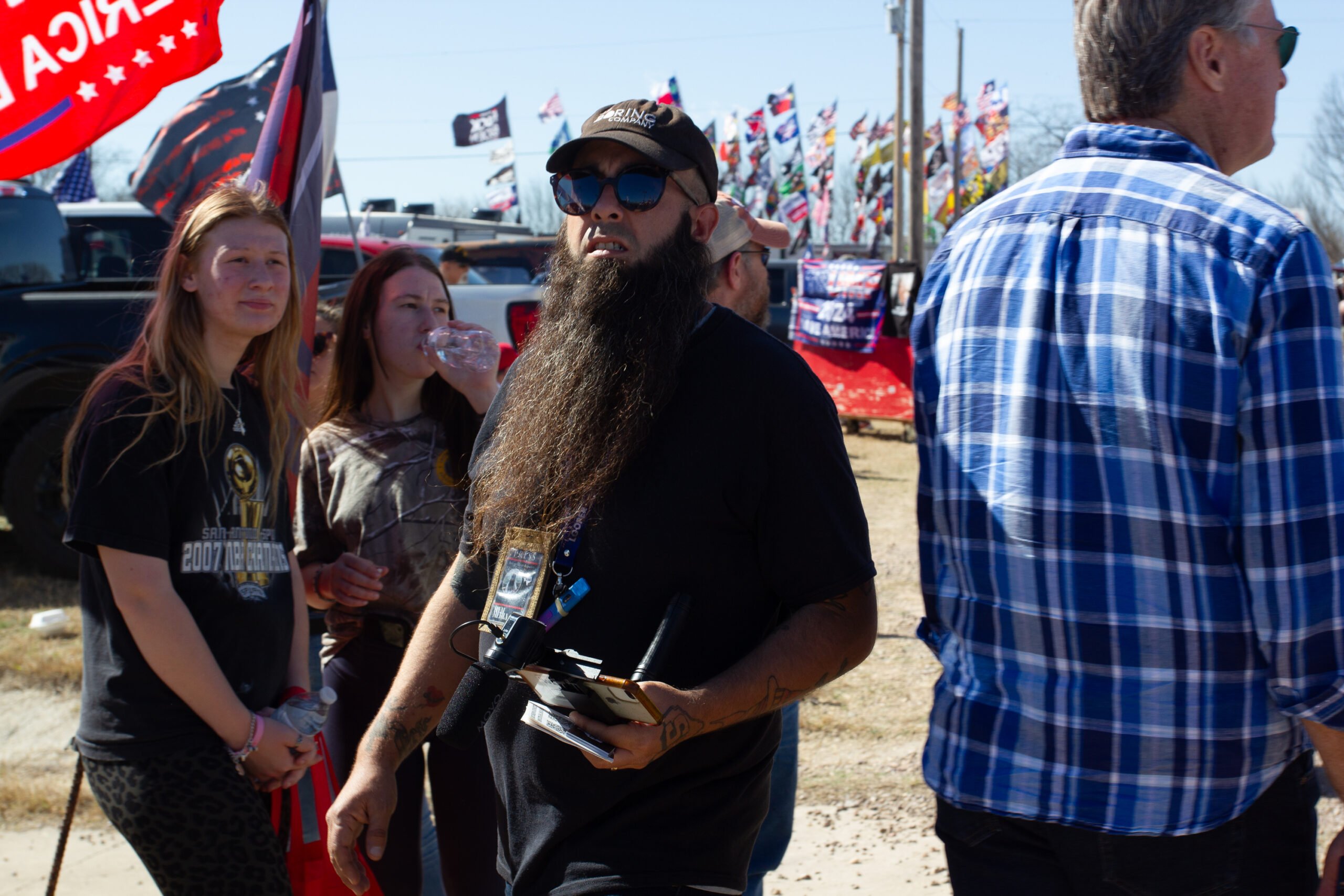Trial Focuses on Border Sheriff’s Knowledge of Corrupt Drug Task Force

Hidalgo County Sheriff Lupe Treviño was back on the witness stand today in a federal trial in McAllen. On his second day of questioning, he was repeatedly asked about his involvement with his son Jonathan’s corrupt drug task force, the Panama Unit. The sheriff denied any knowledge of the unit’s day-to-day actions.
The sheriff was first called to testify for the defense on Friday. But instead of being asked questions about his former employee Jorge Garza, who is on trial for drug conspiracy charges, the defense attorney questioned the sheriff about a wide range of allegations from campaign fraud to his employees accepting money from drug dealers in exchange for sensitive law enforcement intelligence.
On Monday, Gutierrez’s questions shifted to how much the sheriff knew about the Panama Unit, his 29-year old son’s rogue drug task force. All Panama Unit members have since pleaded guilty and are awaiting sentencing. The sheriff has maintained for several months that he had no knowledge of the Panama Unit ripping off drug dealers and reselling the drugs to local dealers.
The sheriff testified that it was his idea to create the task force to arrest street level dealers in the city of Mission. The unit was supposed to work primarily in western Hidalgo County, he testified, but they could work in other parts of the county if they notified local law enforcement first.
Previous witnesses in the trial, including former Panama Unit member Fabian Rodriguez, testified that the sheriff kept close tabs on his son’s unit. But on the witness stand, the sheriff said he rarely spoke with his son, although they live together, and that the unit was under the jurisdiction of one of his deputy sergeants and the Mission police chief. “I had no knowledge of their daily operations,” he testified.
His testimony was often contradictory. The sheriff said that on December 12, his son immediately called him after seizing a car-load of cocaine and realizing the drugs had GPS trackers embedded in them. When the sheriff arrived at the scene he said there was a woman screaming hysterically that the cocaine belonged to the Sinaloa Cartel and that she would be killed.
But the sheriff said he had a gut feeling that it was a government sting. “They [Panama Unit members] were young, stupid and inexperienced, but it was obvious to me the transmitters belonged to the feds,” he said.
“Unless you had some prior knowledge that the Panama Unit was doing bad things why would you suspect a sting?” Judge Randy Crane asked. “If they’re honest police officers just doing their job, why not think that they just came upon another police operation that was tracking a drug load, rather than thinking it was a sting?”
The sheriff testified that he cut the wire for one of the GPS trackers, then authorized a deputy to cut the rest of them, just in case the cocaine belonged to the Sinaloa Cartel. His son was allowed to return to the sheriff’s office where he interrogated the woman who had been driving the car.
But Treviño was right. It was a sting targeting the Panama Unit. And the feds were looking for Jonathan and their confidential informant, whom they later found at the sheriff’s office. “The FBI and DEA showed up an hour later and explained the sting operation. I said okay. They took the woman, the drugs and the transmitters,” Treviño said. And Jonathan was indicted by the feds that same day.
The sheriff also testified that his son told him that a Panama Unit member and sheriff’s deputy, Claudio Mata, had stolen jewelry from a home in Pharr during a drug bust last July. Mata confessed to the theft, but the sheriff didn’t arrest or fire Mata.
After the sheriff, Miguel Flores, a sheriff’s deputy who recently resigned, took the witness stand. Flores testified that he had worked as an informant for the FBI to build a case against the Panama Unit. (In May, he revealed his status as an informant publicly for the first time to the Observer.)
Flores testified that Gerardo Duran, a member of the Panama Unit approached him about working with the rogue task force. “He told me they were very well protected,” he testified. “Because they were working with Jonathan Treviño and protected by [Commander Joe] Padilla and the sheriff himself. If anything went wrong they would clean it up.”
Tomorrow will be closing arguments and then the 12-member jury will deliberate. It’s been a wild trial full of allegations of corruption and chummy relationships between drug dealers and cops. The defendant, Jorge Garza, looks like a small fish swimming in a large sea of corruption.


